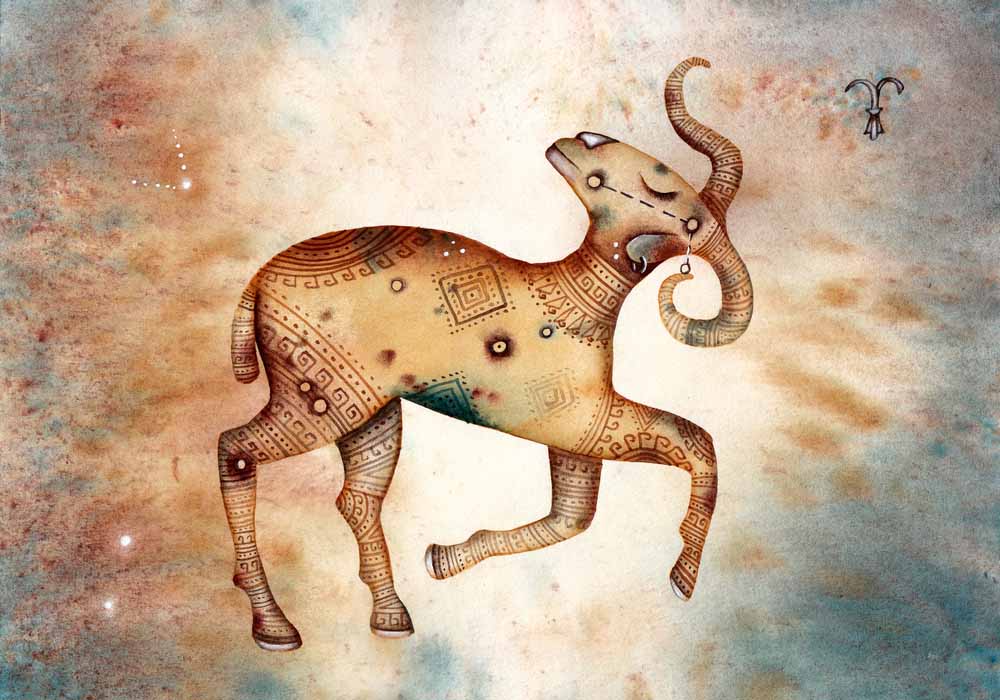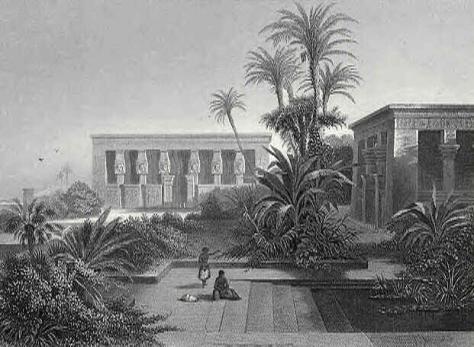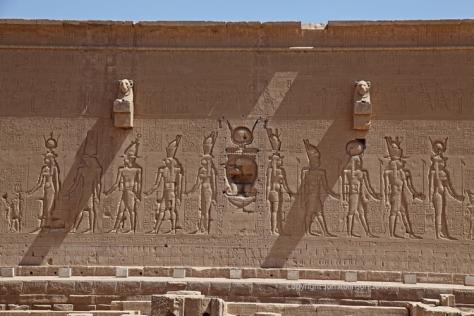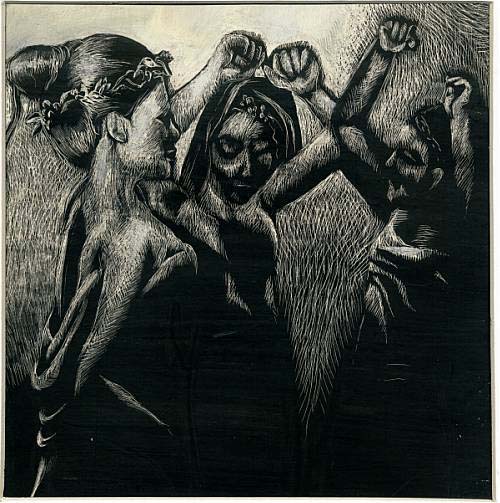
Polarity: Positive, male, Quality: Cardinal, Ruling planet: Mars, Element: Fire, Body part: Head and face, Colour: Red, Gemstone: Diamond, Metal: Iron.
Aries is considered the inaugurator of the zodiac, primarily because it is associated with the vernal equinox, a time when the formative forces of Mother Nature are beginning to regenerate and Life finds its prodigious voice from in between the silent chasms of the slumbering earth. Hence we could equate this zodiacal sign to seed and flame, quite literally for the most part. On a broad, suprapersonal and cosmic level Aries represents everything that has to make do with new beginnings; it is inextricably connected to an agglomeration of potentiality from whence the seed of all life has sprouted, to raw and unharnessed willpower, to action potential, to fearless and thoughtless impulse, to the progressive and spontaneous nature of originality and creativity.
To understand the mode of being that descends from the stars of Aries one must have an intimate acquaintance with the properties of elemental fire. “I’m hot, unconscious, uncompromising, and explosive,” says Aries. “I was here first everyone! There is no other that has preceded me. When you were all going to the mill I had already bagged and sold megatons of wheat, and devised a new method for growing it too. Scorpio, you might have finally figured out how to crawl out onto land from the bottom of the sea without kicking the bucket but it was I that offered up the pivotal clue that enabled you to do so. Taurus, you might be very pretty, well-endowed, and athletic but the girls still prefer me cause I’m the original. Cancer, you might know how to walk sideways and crawl right out of sticky situations but I can steal the head atop from right under one’s nose without their ever noticing. Gemini, you’re the pits. You can’t decide from which angle you want to view life, you’re a two-faced twat and your co-dependent behaviour is pukeworthy! Virgo, you might still be a goody-two-shoes virgin but you don’t really think like one. What you all ought to know is that I spoke, moved, touched, saw, and conquered first… you can all improvise, but your way will never be as good as mine because I thought of everything first!”
Well I guess now we all know who we’re dealing with, hey? To understand the innermost fears, desires, wishes and aspirations of the Arian psyche we must at once return to a more personalized beginning, the psycho-spiritual situation of childhood. Do you remember your first steps into the world, that narcissistic, self-centred yellow flower that was blind to all other shades of yellow in the prairie? Do you remember the impudent child that was so set in its ways and getting what it wanted that it wouldn’t as much as given an inch for the wellbeing of another? Do you remember your short-attention spans, your impatience, and the inability of significant others to subject your immature, single-minded will to the wisdom of analytical evaluation and contemplation? Do you? Do you remember the days of “Me, myself, and I?” Of course you do, why shouldn’t you? Alas, living is just so much more gratifying and titillating when everyone tiptoes around the glorified vision of the world that is yours without the right to hail an insurrection against your theoretical premises. After all, you are the king of your jumping castle, and everyone else’s too.
The mythographer Ovid, was either channelling the great Arian power or writing about a real Arian man when he transcribed his version of the classical flower-myth recounting the fate of the youthful Narcissus. For anyone not familiar with the said myth, Narcissus was a gorgeous boy whose arrogant indifference towards all who expressed sexual interest in him was enigmatic. He was pursued ceaselessly by women, men, nymphs and other mythological creatures, but he would have none of them. One day he saw the simulacrum of his own self in the reflection of a pond and fell head over heels in love with it. Narcissus was at once filled with burning desire to unite with his own likeness. He lowered himself over the reflection, wishing to kiss and caress it and fell in. Given that the boy couldn’t swim, he drowned. In retrospect, one might say that the youthful Narcissus was a bit of a loner, a boy whose self-centeredness, noncommittal tendencies and intense awareness of his own strengths and weaknesses kept him detached from reality and shipyards from any lasting or worthwhile relationships. Further, his insulated approach to life probably stemmed from the unwillingness to open himself up to another for fear of being hurt and fear of facilitating the impression that he had relinquished power of his own being. In the myth we see that Narcissus conducts his affairs in accordance to his own terms; the fear of obligating himself or falling in love and giving another power over him paves a path that inevitably leads to self-destruction. This is Ares to a tee, which can more often than not raise its psychic defences so high as to be eerily unaware of the sonic boom made by the presence of all other archetypes.
Arians have a special talent for seeing in infrared, a phenomenon which can be attributed to the rulership of Mars. The formidable fiery and restless masculine energy exemplified by the red planet rules this sign; it is in constant motion, sometimes simmering subtlety and at other times violently, bubbling in the depths of the collective unconscious for some time before being ejected into those fortunate enough to be born under its stars. Just like electrochemical signals are transposed into thoughts, emotions and memories, so too is this formidable force transmuted into an unconscious and unwavering drive, vitality, willpower, desire, and determination that allows one to succeed at anything they choose to do. The immense physical drive associated with this unconscious urge, the will to break and tear things, drives Arians to war, just as it did when the qualities associated with Mars were allowed to express themselves in full during the precessional age of Aries. Naturally, the process of industrialization, and the cultural and so-called spiritual evolution that has unravelled since do well to contain the violent and bloodthirsty acts that such a primordial power harnesses, and so Arians are forced into engaging socially acceptable and conventional pastimes and activities in which it can be expressed constructively. This is good because their simple-mindedness sometimes prevents them from perceiving the difference between courage and stupidity. In any case, if contained, these tidal forces become a ticking-time bomb. Hence, Arians are more likely than not to engage some form of physical activity like jogging, weight-training, bodybuilding, long distance running, cycling, water sports, and so forth. Given their preoccupation with inner experience, their fierce independence and their self-sufficiency, it is not uncommon to see them wearing headphones or some device aimed at severing the distracting and unwanted stimuli of the outside world.
Naturally, not everything about this sign is tainted in a negative glow. Aries encompasses the fiery seed of creation and like the feminine spirit of Mother Nature herself possesses the virtue of originality and novelty. The former is a powerful, evolutionary tool of experimentation and Arians follow in her stead; an Arian man or women is likely to take risks or chances with things and will fiercely resist compartmentalization and the adherent to social norms and conventions. Aries is not likely to be the housewife that bows to the undisputed authority of her husband, or the savvy businessman who knows which ego to stroke in order to scramble along the rungs of conventional success. Aries is Herculean and more eccentric in the way it goes about its business, so it is more likely to be the Greenie that fights for the rights of our marine friends, the whales and dolphins, or the mindless, brazen thrill-seeker wishing to walk a tightrope between two precipices without a harness. The best thing about the Arian mentality is that it is as direct and blunt as a blinding torchlight in the dark, and comes completely unencumbered by psychological jargon; everything in the Arian world is black and white, simple and rudimentary, just like a lazy tortoise which never really feels the need to analyze the path it took to lay its eggs, think about how its meetings with other sea creatures have altered the course of its life, or simply philosophize about the meaning of its own existence. The labyrinthine complexities of complex critical inquiry are rightfully or wrongly not a matter of concern for an Arian. It’s likely that Aries fears challenge, and particularly the challenge of the unknown. Opening oneself up to such matters demands a surrender of some control–a looming threat of dependence–and Aries will not settle for anything other than being in total control.
There are two symbols connected to the zodiacal sign of Aries. The first, a pictorial depiction of the entire ram, usually graces illustrations of all contemporary zodiacs; the second, a shorthand version utilised by astrologers when concocting horoscopes, appropriates only the horns of the animal for its composition. The design of the glyph is not coincidental; there is an inherent meaning and understanding communicated through its fundamental shape. Horns place immense emphasis on the masculine, phallic element of the archetype; Aries is a fiery, cardinal energy, but above all else it is sexually generative, energetic, forceful, and mobilising. The sign vindicates this unspoken emphasis. Sometimes the shorthand emblem is superimposed over the human face in astrological documents to draw attention to the notion that Aries commands the face or head region of the human body.









